Kate Bowler: Oh, hey, it’s been a minute. Hello. I am so glad to welcome you back for a new season of Everything Happens. My name is Kate Bowler, and if you’re new here I am a professor of history at Duke. I’m the author of books with sort of medium depressing titles that could make you laugh or cry, depending on the day I guess? I am the mom of a third grader who has like a lot of very specific questions about piracy. And I study the stories we tell about whether our lives work out, whether we are lucky or unlucky, whether we feel like we have the lives we deserve. So on this podcast, I have conversations with wise and funny and kind people about what they’ve learned about hope and joy and courage when life falls apart, you know, the exact sort of things you wish someone would tell you when life gets really hard. And so today I thought I would have a conversation with someone who knows a lot about what it’s like to be us, to have that feeling of being cracked open when you learn something that maybe you didn’t want to, something happened to you or to someone you loved, or maybe you went into a profession teaching, service, ministry, health care, just something that caused you to be so aware of the pain of everyone else around you. So yeah, this is what we do together here. We have those kinds of conversations. Conversations we hope will sustain us for the days and weeks to come. You are going to absolutely love my guest today. His name is Dr. Ibram Kendi, and he is famous for his work on anti-racism. But so much of the bravery that we’re going to talk about comes from that initial feeling that he had of being cracked open by a life changing moment, a moment he couldn’t walk back from, even if he wanted to. Because, yeah, once we’re cracked open, if we’re lucky, we’re sort of open to everything.
Kate Bowler: Dr. Ibram Kendi is a historian at Boston University, where he also serves as the director for the Center for Anti-Racist Research. In 2020, Time magazine named him as one of the 100 most Influential people in the world. He was also awarded a 2021 MacArthur Genius Fellowship. But wait, there’s more. Our guest today is very accomplished. He is the author of ten New York Times bestselling books like Stamped from the Beginning, for which he earned the National Book Award for Nonfiction and How to Be an Anti-Racist. His latest book is How to Raise an Anti-Racist. And Ibram is also someone who knows intimately what it’s like to experience the fragility of life. Hello, friend. Thank you so much for doing this with me today.
Ibram Kendi: Hello. I’m so glad we’re able to do this.
Kate Bowler: It’s such a beautiful thing for me to be able to talk to someone where you know immediately that you don’t have to convince the other person that life is fragile and beautiful and has far more obstacles than you hoped that it would. I always with this podcast, there’s always kind of a strange moment at the very beginning where there’s a guest, usually a stranger, and we both have to intuit almost in the first few sentences where whether they understand themselves as being fragile in the world. And so, like, if they could accept that, great. But if they can’t, then like, oh boy, we’ve got to start like before the beginning. So I really appreciate the fact that we can both start with our own precarity.
Ibram Kendi: Of course. Yeah, and I think humanity or human life gives us, if we don’t realize it, eventually it’ll tell us.
Kate Bowler: That’s right. Yes. So, as you know, I teach at a methodist seminary. So most of the students will go on to prepare for ministry of some kind. And I wondered if I could ask you about your faith growing up. Your parents were both in the African Methodist Episcopal tradition. Is that right?
Ibram Kendi: Yes. And my father joined the ministry, became a minister at an AME church, I believe, in like 1989. So I was like seven years old. And I think right around the time I graduated high school, about ten years later, that’s when my mother entered the ministry. And so for the better part of my life, both of my parents have been ministers. And in many ways, they taught me so much about how to reach people, particularly everyday people where they are.
Kate Bowler: Mm hmm. And then imagine that deep sense of calling and purpose that I can see all over your work. Imagine you didn’t expect to just have a job you wanted.
Ibram Kendi: Yeah, and what’s striking is I’ve had some critics of my work describe me as more ministerial than scholarly and even, quote, anti-racism is almost like our religion. And certainly they are doing that to delegitimate sort of the science that’s at the basis of, you know, my work. But on the other hand, I actually view it as a compliment because. Yeah, to be a minister. And to minister to people, to individuals is to first and foremost have the capacity to reach and engage and understand what individuals, what everyday people are going through. And I think too often academics are too far removed from the everyday struggles of people. And we wonder why we, you know, they’re not connecting with our work.
Kate Bowler: But I think for me, the turn toward maybe making, wanting to feel the weight of what history tells us was that I wanted there to be something more at stake. I wanted to in that way, I don’t mind being, you know, evangelical. Like, do you want to tract about this? Great. I’m like out there on the street corner, like, ready to have this mean more than, then a job or a conference paper.
Ibram Kendi: Yeah. The irony is there is. There is a person who creates propaganda. They know what they’re saying is a lie. They have a larger political purpose in manipulating people to support laws or policymakers who are going to undermine those very people’s livelihood and interests. That, to me, is a very different thing than than somebody who spends a decade researching a topic, gathers the evidence, comes to understand it, learns how to convey it, and then spends their career conveying it to people and and continues to convey it from the basis of research. To me, those are two completely different things.
Kate Bowler: Yeah. One of my great hopes for ideas is that they carry the weight of our lives and that if they’re meaningful, then and well-researched and have the convenience of being true. Then they change us all. And it reminded me of you writing about your dad, listening in on a class by Dr. James Cone and what it would mean that in this context to be a Christian. And he answered, a Christian is one who strives for liberation. And that sounded to me like one of the deep purposes of your work is you want ideas that set us free.
Ibram Kendi: Yes. What is the purpose of creating ideas? What is the purpose of gathering and amassing research? What is the purpose of understanding human problems? If we’re not seeking to solve those problems, to allow our humans to be more free and more joyful, then I couldn’t just do it for the sake of doing it. I mean, I feel like we as scholars and, you know, should have a larger purpose too.
Kate Bowler: But footnotes. But footnote Ibram. We could just we could just be great at parties with, like, unbelievably well-resourced anecdotes.
Kate Bowler: Yeah. At this point, I just want it to matter. Like, I want it all to matter. Even just starting another, you know, starting a book, starting at anything. Maybe the ticking feeling has become something that’s transformed my life. And I wonder if you feel the urgency or would like describe the urgency in the same way, because we both have a lot more in common than either of us would hope. We both got stage four cancer at 35. We both had no history of illness in our family in that way. I think my kid was two. I think yours was one. I wonder if you wouldn’t mind telling me about those months leading up to the diagnosis, because you were in the middle of like a really incredible moment for your work. Everything was really like building momentum and coming together. And this must have been like the undoing of a world for you.
Ibram Kendi: Yeah. So in the summer of 2017, I moved to Washington, D.C., and took a new job at American University and started a new center. And it was that time in which I started having some symptoms, you know, particularly needing to to go to the bathroom and almost every other every 30 minutes, you know, only for nothing to come out. And I started sort of losing weight, although I didn’t it was small enough that I didn’t necessarily notice it. And so it wasn’t really until Thanksgiving break that I thought was a stomach virus. And that’s when I started sort of bleeding when I was doing a number two, as my daughter would call it, and and the bleeding didn’t stop. And but I didn’t think and I knew as a problem, but I didn’t think it was extremely serious. And it really wasn’t until that New Year’s break when I went on a vacation with my partner, who’s a physician. And I think that’s when she saw the totality of all of my symptoms because we’re together in the same house for a whole week. And that’s when she just got on the phone and ensured that I got a colonoscopy when I got back. And that’s, of course, when I found out I had this cancer.
Kate Bowler: When you were like assumed it would be manageable, assumed it would be like a series of small events. I. I don’t think anything would have prepared me for the surrealness of a diagnosis like that.
Ibram Kendi: Well, and part of it I don’t know what happened in your case, but we I saw a nurse practitioner before we had the procedure on my colon to just, you know. And because of my age, you know, because of my risk factors, you know, she explicitly said, oh, of course, there’s a chance this could be colon cancer, but I don’t think that that’s what it is. So in a way, because of our ages, because of our risk factors, it’s played down. So that I think that almost increases the shock when we’re diagnosed.
Kate Bowler: I wonder when you talk to other people and I’m sure you’ve met so many of them by now, why it feels so hard for people to accept the severity of a diagnosis like that or even just to maybe accept that by nature we’re made of such fragile stuff.
Ibram Kendi: My suspicion and I think this even started when I had cancer. I partly because my partner beacause she had breast cancer a few years prior. And one of the things that I noticed in caregiving for her was how weird people acted around a patient, you know, someone who had cancer. And, you know, it took me a while to figure out, like, why did people act in such a weird capacity around a cancer patient? And I wonder if it speaks very simply to your question, which is that by people who don’t have cancer coming across a cancer patient by people, let me say be more specific, someone who does not fully appreciate or understand the fragility of life interacting with a cancer patient, it forces them to come to grips with the fragility of life and they don’t like that. So that sort of then makes them weird around that specific person.
Kate Bowler: Yeah, like I felt like a sort of public service announcement for mortality. Like I was just breaking into people’s houses and giving them the news. Like, Dear sir or ma’am, I am sorry too unfortunately remind you that we may or may not will die at some point in our lives. And I’m sorry that I, Kate Bowler in the first person to tell you that but it made me a nightmare at kids birthday parties, it just felt like small talk just fell off the rails right away.
Kate Bowler: So as the caregiver, I imagine you just watched their responses to her again and again.
Ibram Kendi: I did? Yeah.
Kate Bowler: Was it easier to give care than it had been for you to receive it?
Ibram Kendi: Well, it was much easier for me to be the patient. Then it was the caregiver. You know, I think the reason for that is because, you know, particularly when you’re caregiving for someone who you know very deeply or even someone who you don’t, but you’re deeply humane person and you don’t like to see anyone else suffering. It’s just hard. And it’s especially if you’re not a physician. So you can’t really you almost feel helpless in trying to heal them and then trying to support them emotionally, which of course is, is, is, you know, very difficult. It was much more difficult for me to be a caretaker, be a caregiver. You know, then it was a patient.
Kate Bowler: I hadn’t thought about the vulnerability of not being able to fix someone else’s problems, but being as being like the core of that work.
Ibram Kendi: Yeah. And I think. That’s probably one of the reasons why I decided not to publicly reveal that I was, you know, in the diagnosis or even undergoing treatment just because I found it harder interacting with people when they knew. Because of what we just talked about. About, you know, you know, then, then, then, then when they did. And then there’s also a desire. Particularly when you have stage four cancer to have some level of normality in which you just. You know, because so much is abnormal, quote unquote now.
Kate Bowler: Yeah. Do you think, too it’s because our jobs are so cerebral. Like, it’s easier just to make the argument, you know, and then move on with the work itself than to, I don’t think I was socialized in this job to want to give any personal like to think that my life had really any direct implication on my ideas. And now I can see that that was a bizarre dichotomy.
Ibram Kendi: I, I do think that that’s partly the case. And I wonder, one of the things that actually got me through treatment was working on How to Be An Anti-Racist. What actually happened was I struggled so much to write the personal narrative parts of that book before the diagnosis. And after the diagnosis, those came much more easily. And I think part of that was because I realized through the diagnosis that all of this is personal, you know? At the same time, it is structural. But then I also was just less bothered with how people would respond to the book because I didn’t even know if I’d be.
Kate Bowler: Yes, yeah, yeah, yeah, yeah. Screw it was a huge motivation for me to write. You can be. I don’t know if we just borrow courage from it. But yeah, that one book I wrote right when I was diagnosed, I didn’t think I’d see the summer I wrote that, and that part was in like two months, and I don’t think I’ve ever written that quickly in my life. But it is it is a weird unlocking to, I don’t know. Is it that we like, what then do you hope other people learn? When they understand their own precarity, when they know that the future of good health care policy. The future of undoing structural sin, structural racism. Like, did you did the urgency of that just sort of override other desires or factors?
Ibram Kendi: Oh, without question. I mean, when you don’t really know how long you’re going to live, making decisions in terms of whether you should do something or when you should do something. I just after the diagnosis, I had a very different perspective on this, and I just tried to do everything that was humanly possible that that I can do and everything became much more urgent. But that doesn’t mean that we should or we do come out with projects that aren’t high quality because we’re coming out with quite a bit. It’s just that we’re not holding ourselves back in the sense oh, I’ll just do this later. You don’t know when later is even going to sort of be on the horizon.
Kate Bowler: Yeah. Reading your work, one of the themes that really emerged to me was that kind of courage. Better now than later. The, what would I have to lose? Except, I lost some pride in all of this, but I did. I do think we gain something pretty lovely when we lose a bit of that pride. And I was so moved by the really stunning op ed slash photo spread in GQ, which you did, which highlighted the bodies of cancer survivors. I wondered if you’d mind telling me a bit about your willingness to be that vulnerable and what, I mean, there are some really stunning stories in there from yourself and others about about what scars mean to you today.
Ibram Kendi: We are in many ways taught to be ashamed and to hide our scars. And whether those are physical scars or even mental scars and I have come across the fact that one of the incredible things that some women’s magazines have done is they have showcased the scars of breast cancer survivors, which I think and showcase them in all their beauty, which, of course, has pushed back and challenged, you know, beauty standards and you know I know particularly as a man that some men are likely not wanting to show their scars, not only because they’re not considered to be handsome or beautiful, but also because it demonstrates those scars do their vulnerability or their weakness. And I just wanted to convey it’s actually quite the opposite. Right? You know. You know, scars when men are women, you know, show their courage and show their strength and show, you know, their beauty. It’s another form of natural beauty. And and I just wanted to encourage people to appreciate and to show the scars in the fullest sense.
Kate Bowler: Takes a lot of, it really does take a lot of courage to embrace the post changed self that you might wish you could undo. It was also a really just stunning visual account of disparity in health care. And I wondered if you’d mind telling me a bit about the rates of diagnosis for colon cancer, in particular for black men.
Ibram Kendi: Yeah. So, I mean, we African-Americans are 40% more likely to die of colon cancer than white Americans. And in many ways, we too often are taught it’s the result of genetic or cultural or behavioral problems with African-American patients, just like with COVID. In other words, when when we learned in April of 2020 that black, brown and indigenous people were being diagnosed in and killed from COVID as well at the highest rates and higher than white people. The immediate assumption was, oh, they’re not socially distancing, or why aren’t they taking the coronavirus seriously? Or What’s wrong with them? It’s so hard for people to recognize the racial groups as equals, even though they imagine themselves as not racist. It’s so hard for people to point to racism as the problem rather than people even as they imagine themselves as not racist.
Kate Bowler: One of the great gifts of your work is that you’ve given people categories for thinking about racial disparity. You want us to give up on the illusion of neutrality, and I, why is that so important when it comes to changing systems like health care?
Ibram Kendi: Well, to put a fine line on what I’ve been saying, when you have a racial disparity like black people dying at 40% higher rate than than white people. There’s two explanations. Either it’s because there’s something wrong with black people or there’s something wrong with our policies, conditions, the structures, you know, health care itself. There’s no neutrality there. Like it’s either or. And some people would argue somehow it’s both. And so part of this is based on on the research we as humans are either thinking that the cause of disparity is the inferiority of superiority of a racial group. Or we’re thinking it’s because of bad policies, either bad people or bad policies. And once we acknowledge that, that these disparities between groups are either a result of bad people or bad policies, and which we also understand that to say, a group of people are bad or that their culture is bad, or the behavior of the bad or their genetic makeup is bad, then that’s a racist idea. Once we come to grips with that, then it becomes clear what the problem is and what we should be imagining or focused on, which is bad policies and bad conditions. And so I just I’m trying to really bring clarity, you know, to people, because so much of our discussions about race is purposefully clouded. People complicate it in many ways so people don’t understand. So people don’t see this clarity. So the racism can persist and continue to to harm people. And I think if there’s any topic we need clarity on, it’s this.
Kate Bowler: Yeah. Yeah.
Kate Bowler: You and I both talk a lot about empathy. Like big, courageous empathy. What are some of the limits, though, of how people often think about empathy?
Ibram Kendi: Well, actually, in my latest book, How to Raise an Anti-Racist, I had a whole chapter on empathy and obviously talked about the critical importance of of raising a child to be empathetic, because studies show if you raise a child to be empathetic, they’re less likely to be vulnerable to racist ideas. They’re more likely to to be able to stand in the shoes of other people who don’t look like them and therefore treat them equitably. But one of the things I realized and one of the things I wrote about in that chapter is that there is a such thing as racist empathy. And I contrasted that with anti-racist empathy and racist empathy is, let’s say, a person can be empathetic to people of their own racial group, and they’ve been taught to be empathetic to people of their own racial group. When they see a white child who is who is hurting, who’s not their own child and their white. They almost see their own child. But then if that child is black. They don’t have that same feeling. That’s. So I think it’s important for us to acknowledge that they’re empathetic to that white child. And so that is empathy. But if they don’t have a similar empathy for a black child in the same situation, then that’s an actual function of racist empathy and what we’re trying to nurture children to have is anti-racist empathy, where they have that same human connection to to all people, to all. And they don’t also make their empathy transactional. They don’t say, okay, you know what? You deserve my care and my empathy because you worked hard and it versus you don’t deserve it that we’re all deserving because we’re all human.
Kate Bowler: I would love to cure our national rhetoric of the word deserve. Yeah. You’re writing about parenting. There’s a there’s such an intense honesty to it and the kinds of conversations about race that we should be having with our kids. Which really brings us back, I suppose, to where we started, which was precarity. What kinds of courage can we foster in kids when we are willing to be more candid with them about ourselves and our society? About racism?
Ibram Kendi: I mean, I think that’s that’s so critically important because, I mean, we can lecture and explain and say things to our kids into other kids all day long. But kids primarily learn through what we do. And what they observe. And so for us to be candid with them, they’re not only observing and hearing what we’re being candid about, we’re showing them the critical importance of being candid, which, of course, they will model. We’re showing them the importance of being honest about the persistence of racism or any other social ill. And we’re showing them the courage of standing up against that injustice. And so I just think it is you know, it is just so important for us as caregivers to be courageous. And ensure our children sees us. They see us being courageous because if there’s anything that we need to be as humans to ensure human survival, you know, it’s courage.
Kate Bowler: To me, the ministry of your work, if I can call it a ministry, if you don’t mind. Is that you’re asking us to do the same thing that I started praying for right when I got sick, which was just, God, let me see the world as it really is. And in that reality, maybe, maybe then once I see it a little more clearly then God, might I have a little bit more courage. So thank you, Dr. Kendi. You have such a deep desire for us to see things as they are. And my hope is that it will make us genuinely more empathetic and more kind and more willing to have the sometimes wildly and wonderfully uncomfortable conversations that we all need. Thanks for your incredible work. Really.
Ibram Kendi: Of course, Kate well, thank you for your incredible work as well and in helping to bring together this community of people who in many ways are being forced to see the world as it is while the rest of the world continues to walk in an illusion. But eventually they’re going to see it the way we see it, too. And we’ll be ready to to support them.
Kate Bowler: Well my dears. We are all seeing the truth a bit more clearly lately, aren’t we? Sometimes by choice, sometimes by force. Sometimes change is easy. And sometimes it’s painful. Sometimes it asks everything from us. It is a strange thing being changed. Being different than the person we were before. When Ibram asked the folks at GQ to feature people who’ve been changed. Oh, man, you really have to go take a look at it. Photos in the spread are so striking. I’ll add a link to the show notes at katebowler.com so you can see it for yourself. But it’s such a strong representation of change, of scars. Scars like mine stitched across their abdomen and chests. Scars that tell the stories of pain and fear. Scars that speak of survival. Scars that remind us that we are fundamentally, not always the people we were before. So if that’s you in any way changed by a different relationship, by the loss of someone, by the addition of someone, by the way, that our lives and our fears have made our lives maybe unrecognizable, then this is a blessing for you. For when you need permission to be that changed. Blessed are you dear one, when the world around you has changed. Everything is different now. Your body, your age, your relationships, your job, your faith. The things that once brought you joy. The way you existed in the world. The people you love and trust and rely on. Things have changed and it would be silly to imagine you haven’t changed with them. You are not who you once were. Bless that old self. They did such a good job with what they knew. They made you who you were. All the mistakes and heartbreak and naivety and courage and blessed are who you are now. You who aren’t pretending that things are the same and who continue to grow and stretch and show up to your life as it really is. Whole hearted, vulnerable, maybe a little afraid. So blessed are we the changed.
Kate Bowler: Before I go, I would be remiss if I didn’t give a little public service announcement. So I’m going to be bossy for a minute, if you don’t mind. Schedule your colonoscopy. If you are 45, you need to be screened. If you have any history of colon cancer in your family. You need to be screened even earlier than 45. And if you have any symptoms like the ones Dr. Kendi described, don’t hesitate to advocate for yourself to demand the scan or the extra test. It’s your body and it’s precious. We have links in our show notes that can help you know if you’re eligible for a colon cancer screening and what to expect when you have one. Visit katecbowler.com Slash podcasts to learn more.
Laura from Missoula: Hi, Kate. My name is Laura. I’m calling from Missoula, Montana. I am a big fan of yours, and I wanted to answer your question that you posted on your Instagram stories about, you know, what have I done to learn to love my body again? And for me, I started sewing. I was diagnosed with breast cancer almost two years ago. And treatment for me meant bilateral mastectomy. And I chose to stay flat afterwards, no implants or anything, and also medically induced menopause. And so here on the other side of it, my body was completely changed and really foreign and and it sounds weird, but I started sewing. I basically threw out my entire wardrobe and started over. And for the last six months or so, I’ve been really learning how to alter patterns and to make clothes that fit who I am now. And I tell you, it’s been a godsend, because I used to look in the mirror and see everything that I lost to the fire. And now I increasingly see these custom clothes that I am proud of. And, you know, I think the hardest part of all of the cancer, everything was that point when I no longer recognized myself in my reflection. And sewing new clothes feels like a sort of peace offering, this like gift to my body, a way to acknowledge that despite everything, that it allowed us to survive. And I think it’s also a way that I can stop trying to reclaim who I was and just let myself be whoever I’m going to be after all this. So that’s my story. Thank you so much.
Jessica from Washington, DC: Hi, Kate. My name is Jessica, and I’m calling from Washington, D.C.. I’m calling to answer the questions about struggling to live in my body after disease and learning to love my body again. About two years ago, I was diagnosed with a rare, incurable, not easily treatable stomach disease, it’s not terminal, so it won’t kill me instead I suffer with a lot of chronic pain and complications from the disease, and sometimes dying seems like it might have bit easier. I’m 36, When I’m in pain I struggle to be inside my body. I disassociate a lot, often voluntarily, and I haven’t quite learned to love my body since getting this disease. But I’m trying to learn how to come back inside my body, even when I’m in pain. I write poetry. I do a lot of therapy. I scream into pillows. I cry. I read your work and work similar to it. I talk to friends who can handle hard things. I planted a flower garden with my four year old daughter and we make flower arrangements for neighbors and our selves with our huge crop of Zinnias. And I think their black eyed Susans. That helps me remember that my body can still make beautiful things and I do my work at minority research jobs, and that makes me feel purposeful. I do all these things in a body that feels broken, but it reminds me that I can still do good things, even while broken. Maybe I’ll learn to love my body someday. First has to trust it and trust my experiences in my body. Right now, I think I’m learnig to feel safe in my body and hope that next I can be friends with it. Maybe love will come after that. Thank you for your work Kate and for the opportunity to share my story. It means a lot to me.
Kate Bowler: And before you go, a very special thank you to our generous partners who make this work possible. Lilly Endowment. The Duke Endowment. Duke Divinity School and Leadership Education. And to my wonderful team Jessica Richie, Harriet Putman, Gwen Higginbotham and Keith Weston. Thank you. Come find me online. I’m at KateCBowler and apparently I’m on tik tok now. Or if email is your thing, I’ll send out a blessing every week. Sign up for free at katebowler.com slash newsletter. Okay. I’ll talk to you soon. This is Everything Happens with me, Kate Bowler.
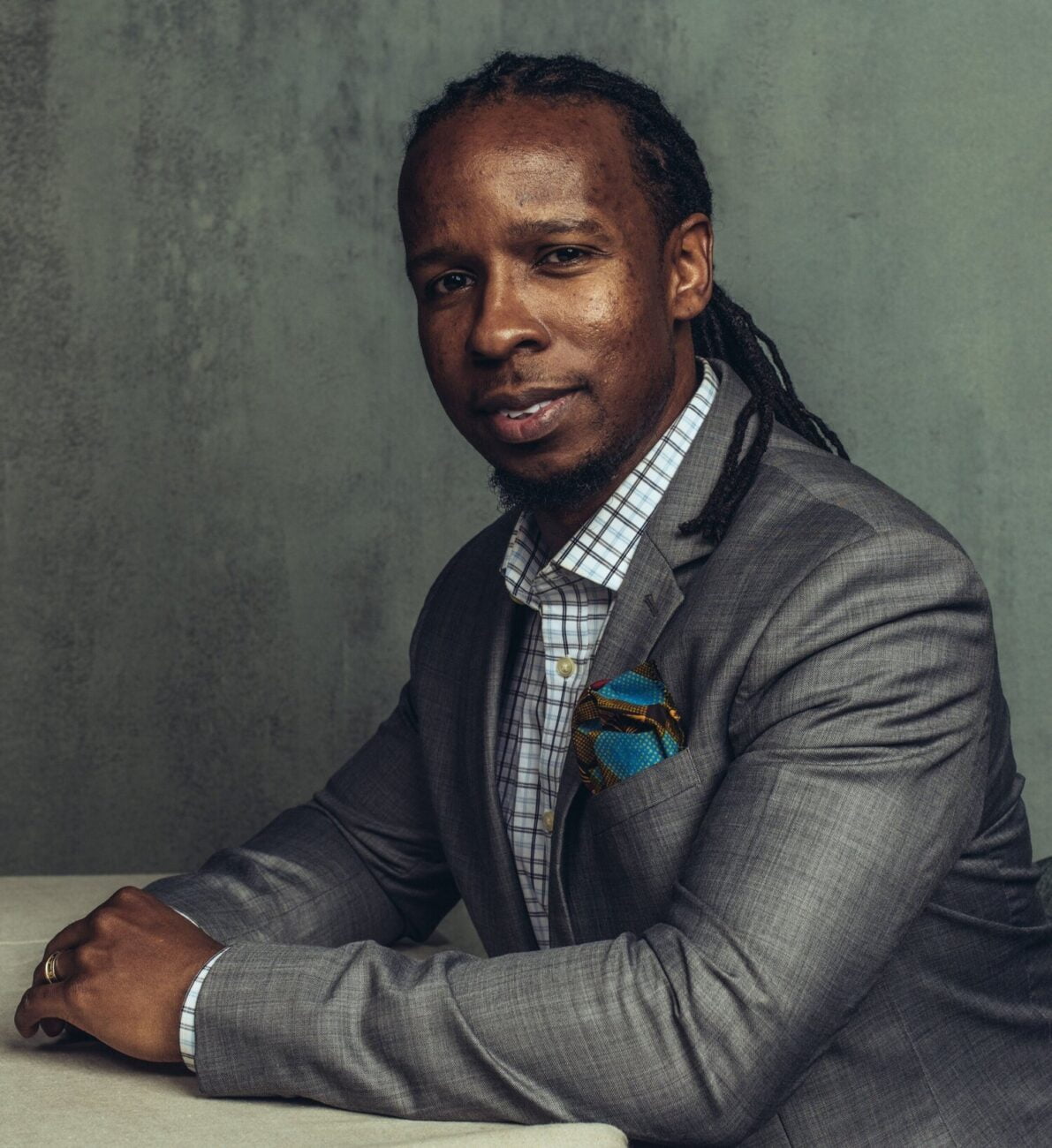

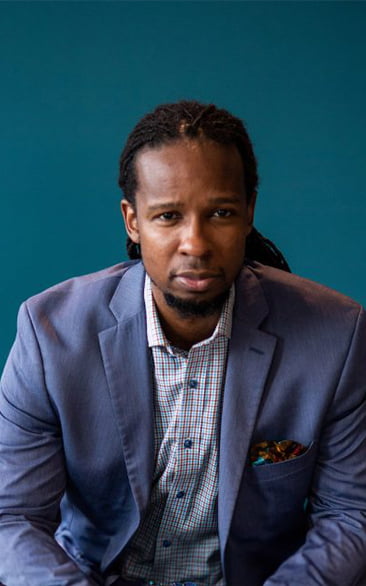
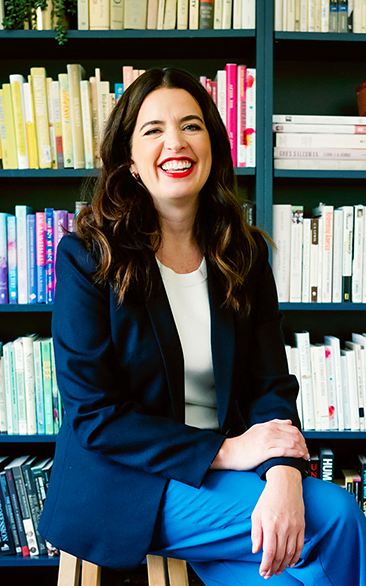







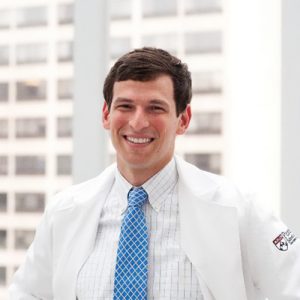
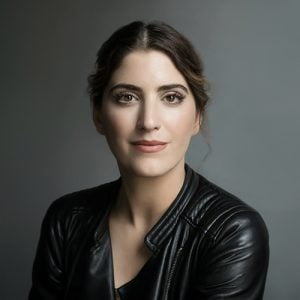
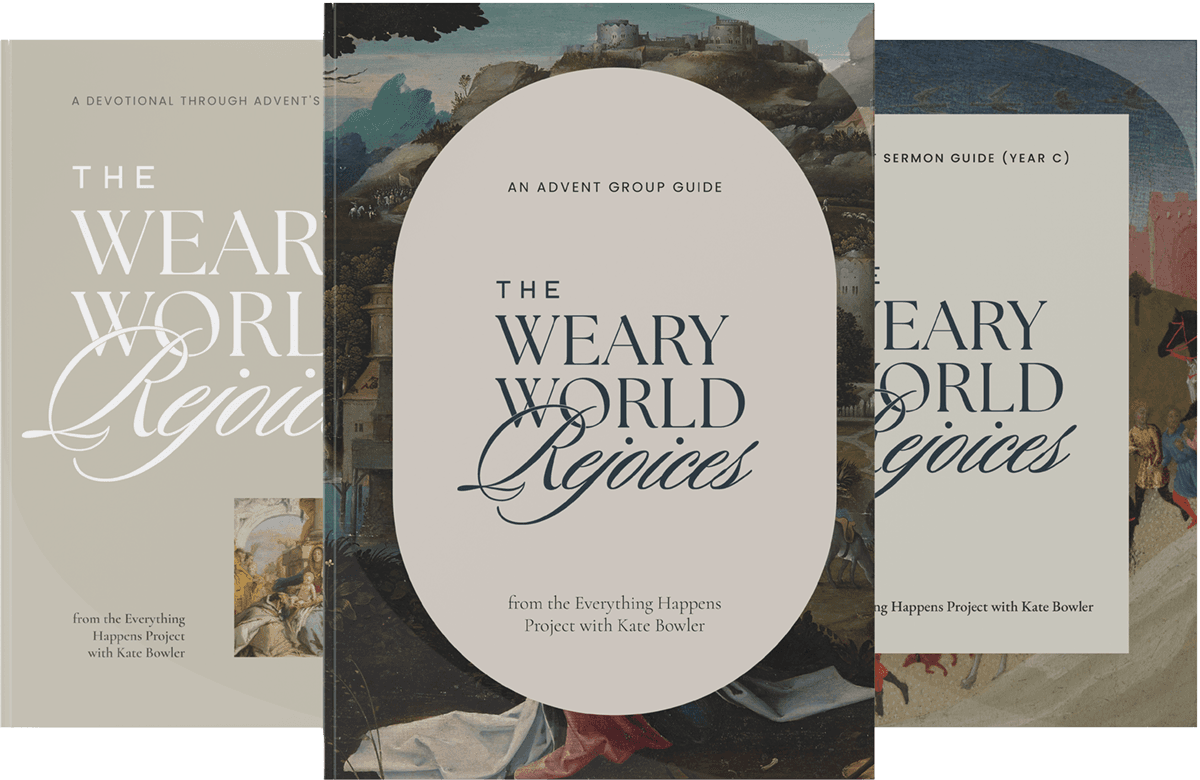
Leave a Reply